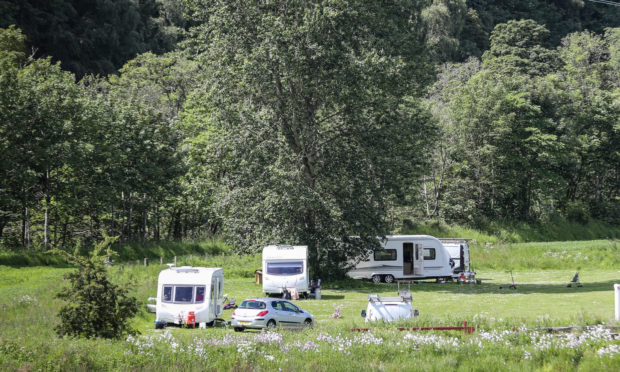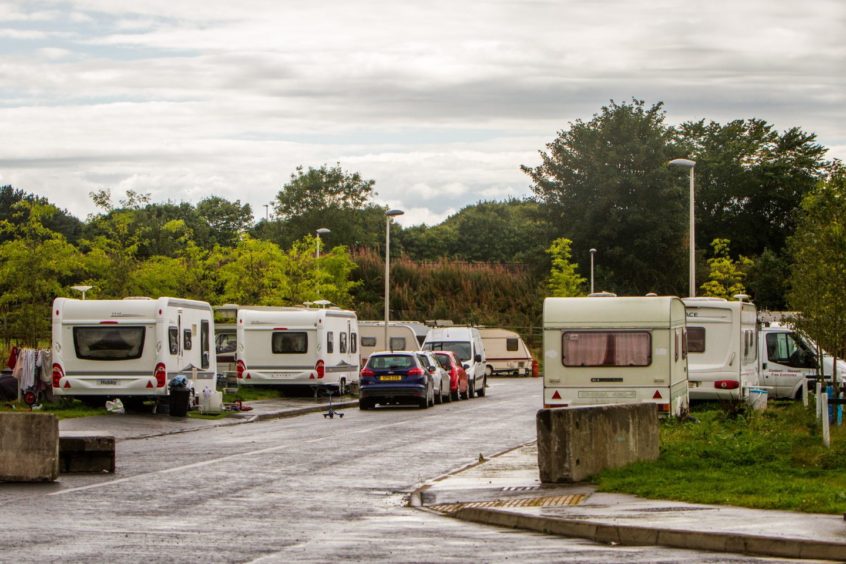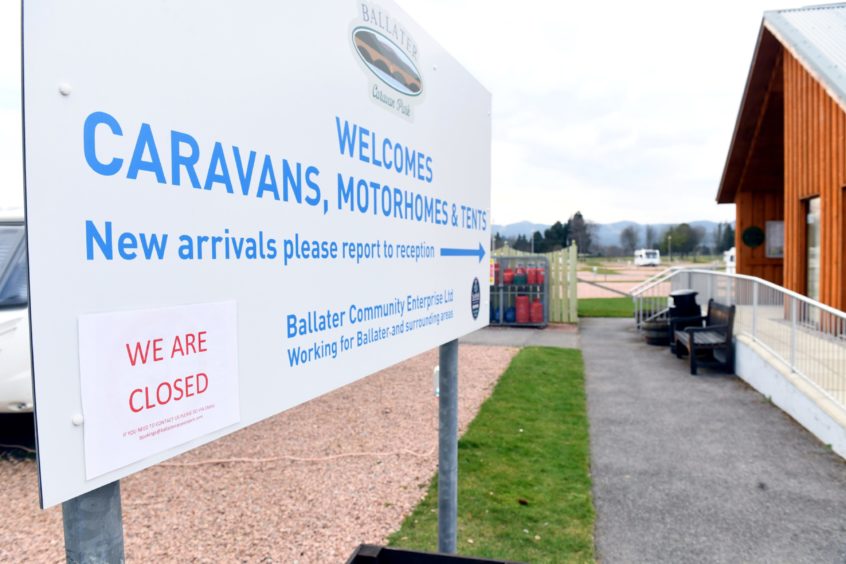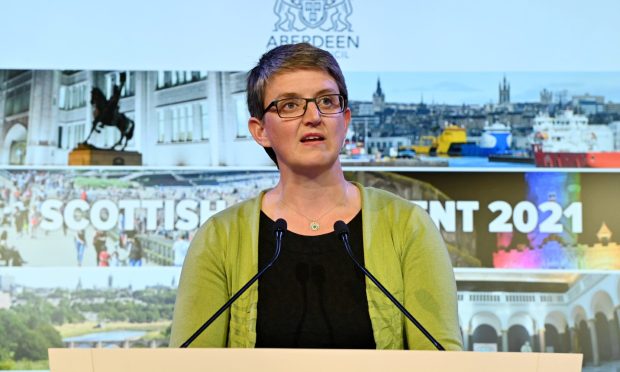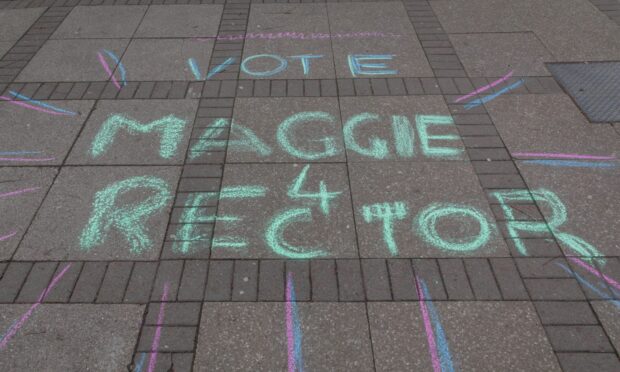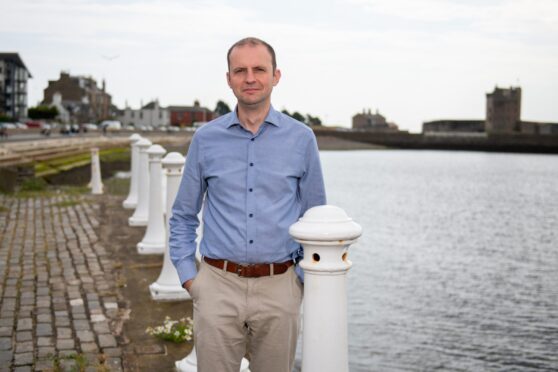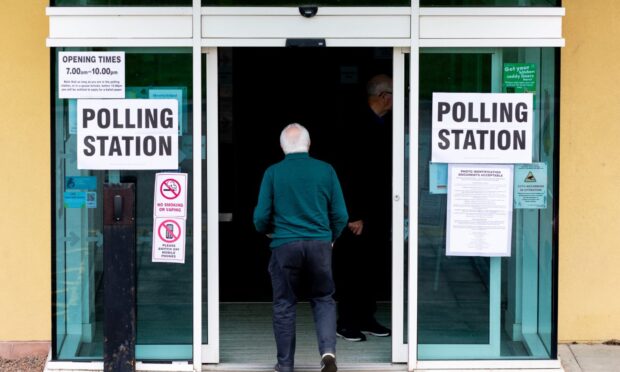Scotland’s Gypsy-Travellers are at risk of “extreme poverty” due to the coronavirus outbreak – and could be moved to empty holiday sites to protect them from the disease.
Members of the community living on unauthorised, local authority-run and private sites are facing “unique challenges” in order to adapt to self-isolation and social distancing measures in the wake of the Covid-19 outbreak.
It comes as a Scottish charity warned that the travelling community is facing “real financial hardship” as the pandemic threatens their way of life – with many struggling to claim financial support to see them through the pandemic.
In framework published this week, the Scottish Government laid bare the major issues being faced by Scottish Gypsy-Travellers as a result of the health crisis, which has now claimed the lives of 495 Scots.
The framework warns the travelling community’s way of life is being “severely affected” by the pandemic and families are “at risk of extreme poverty” – which will be exacerbated if members have to self-isolate.
It states travellers are facing food and fuel poverty, financial insecurity, overcrowding in caravans and on sites, limited access to living space for the purpose of self-isolation, and struggles accessing a range of services.
This is being coupled with hostile attitudes towards the ethnic minority, mental health repercussions from being forced to cease travelling, and many other factors.
Members of the community are being asked to return to “settled homes” if they have them, with councils called on to provide assistance for those who do not.
This can include “supporting the encampment where it is” or identifying “an alternative location (or) space on (a) permanent site”.
The government report asks councils to pinpoint “suitable land” for camps to allow Gypsy-Travellers to adhere to social distancing, shielding and self-isolation measures due to Covid-19.
If local authority land cannot be used, they should consider sites in public or private ownership – including empty holiday parks – as accommodation for families.
“It may be necessary to provide individuals and their household members with separate accommodation or housing if someone shows symptoms of Covid-19.
The report reads: “If local authorities cannot identify land that they own but have identified suitable land in public or private ownership, including uninhabited holiday sites, they could consider paying for the use of land using their allocation of the hardship fund.
“Holiday caravan sites have been asked to close to prevent tourism but emergency regulations, The Health Protection (Coronavirus) (Restrictions) (Scotland) Regulations 2020, allow them to remain open if requested to do so by a local authority.”
Local authorities have also been asked not to evict travellers from unauthorised land unless a site is deemed “unsuitable” on health and safety grounds – with appropriate land found as an alternative.
Where required, councils are being asked to assist travellers on the likes of roadside sites by providing sanitation, bins, refuse collections, and issuing health advice.
Additional toilets could be required at council-run sites, with mobile homes spread across pitches as a precaution against Covid-19.
The report adds: “Gypsy-Travellers cannot self-isolate while they are travelling so families should be supported to stay in one place, either returning to their settled home or establishing a camp.
“It may be necessary to provide individuals and their household members with separate accommodation or housing if someone shows symptoms of Covid-19.
“Local authorities should identify local accommodation solutions which are culturally appropriate if feasible, for example an additional trailer on a site if it is large enough or a place on a holiday site.
“Where possible, local authorities should allow residents to move on to unoccupied pitches where this allows caravans to be more spaced out.
“Some smaller camps may wish to reduce risk by significantly limiting who and what comes on to the camp.
“If residents wish to take this approach as a camp, local authorities should consider how they can provide any support to access food, medication and other essentials.”
A lot of people are self-employed – it’s a tradition of self-reliance that the community is very proud of – part of their way of life.
Suzanne Munday – Gypsy-Traveller programme manager at MECOPP, a Scottish charity that supports informal carers from a range of ethnic minority backgrounds – said: “We are pleased that the joint framework recognises and addresses the very real pressures that are facing Scotland’s Gypsy-Traveller community during the coronavirus outbreak.
“Like every community in Scotland, Gypsy-Travellers are really worried about the pandemic.
“A lot of the work that the community does is outdoors and the opportunities are drying up. People are worried that small family businesses that have been passed down for generations might go under.
“A lot of people are self-employed – it’s a tradition of self-reliance that the community is very proud of – part of their way of life.
“Restrictions on movement also mean that they cannot help with harvesting so there are even fewer opportunities to earn a living.
“Despite this, there is a lot of self-help going on in the community right now with people checking on the older and more vulnerable, doing their shopping and making sure they aren’t lonely or worried. Just like any other community really.”
She said people across Scotland can show support for the country’s Gypsy-Travellers by being “more understanding”, adding: “It’s about communities pulling together and showing respect, we are all affected by the coronavirus outbreak.”
Dr Lynne Tammi – interim national coordinator of Article 12, a human rights and equality organisation – said: “Article 12 in Scotland has worked with the Scottish Government, COSLA, NHS Health Scotland and other third sector organisations to develop this framework to ensure that, as with all other members of our society, the needs of Scotland’s Gypsy-Traveller community are met.
“In times of crisis it is important that we come together as one and ensure that all can benefit from the information and provision that will keep us safe and well.
“Due to a nomadic culture and strong family ties, Scotland’s Gypsy-Traveller community face unique challenges at this time – I believe this framework will go some way to addressing these challenges.”
